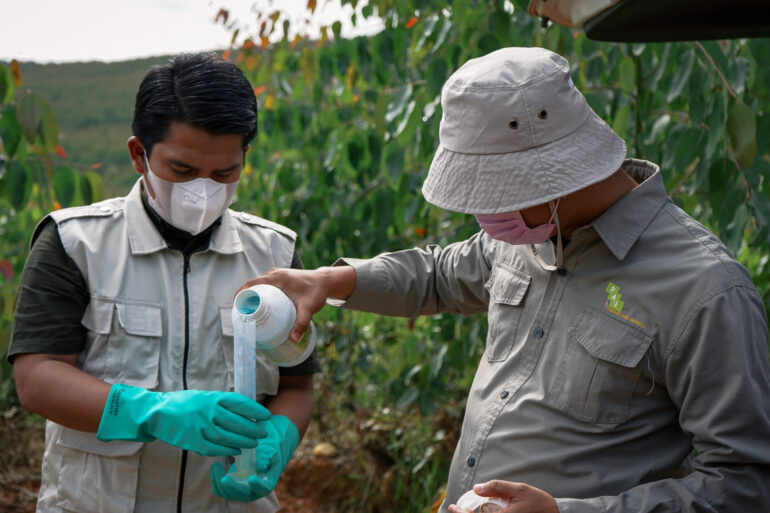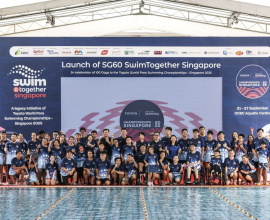The push for sustainable agriculture in farming is being accelerated by Pandawa Agri Indonesia as seen in their newest report.
Sustainable agriculture is an issue that is becoming of utmost importance, considering the rising demands of a growing population. Indonesia is no stranger to this, with palm oil and coffee – items utilized in a huge majority of the world – being one of the top few products they export. Tremendous effects are in store if they are unable to keep up with both global and local demands, especially given the rise of citizens moving from rural areas to urban areas in search of well-paying jobs and increasing difficulties in the agriculture sector.
While multiple shifts towards sustainable agriculture practices have taken place, one of the most recent ones is the work of Pandawa Agri Indonesia (PAI) directed towards smallholders.
who is PAI?
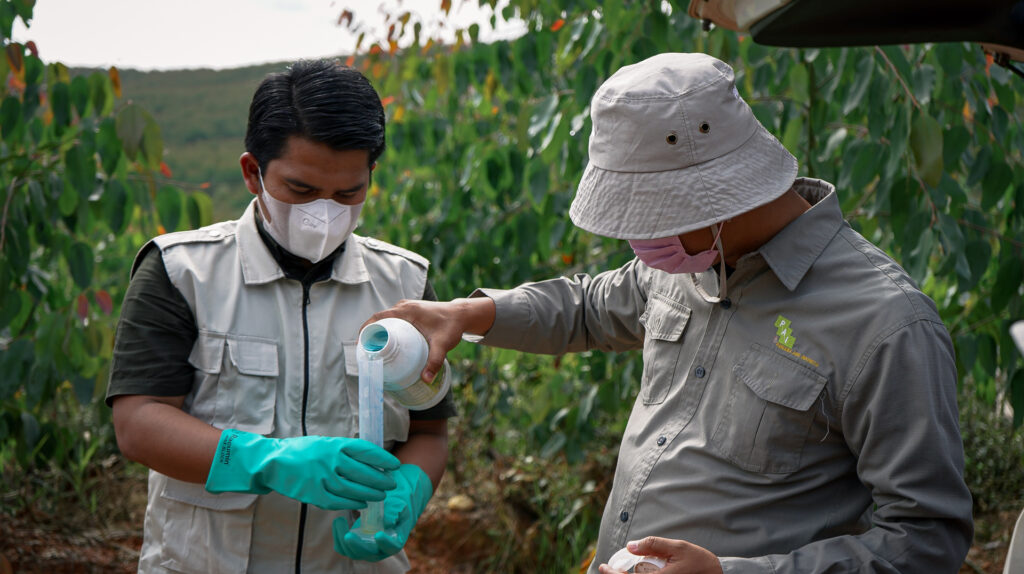
Pandawa Agri Indonesia (PAI), is the first Indonesian life science-based company with innovation in the creation of pesticides-reducing products (also known as pesticides reductants). The corporation is committed to helping agricultural business actors in coming up with sustainable, environmentally friendly practices that are both safe for users and cost-efficient.
PAI has recently unveiled their first Sustainability Report, in which three sustainability frameworks to increase the practice of sustainable agriculture in Indonesia were highlighted.
Also called the 3 PROs, they are as follows:
- protecting the environment
- prospering the people
- promoting responsible business practices
Kukuh Roxa, CEO of Pandawa Agri Indonesia, further highlights that “Our utmost priority is to transform agriculture practices to become more sustainable and environmentally friendly by developing breakthrough technologies focused on building climate resilient agriculture, alleviating pressure on the environment, and producing higher yields at the highest standard possible.”
PAI’s sustainable impact on farmers.
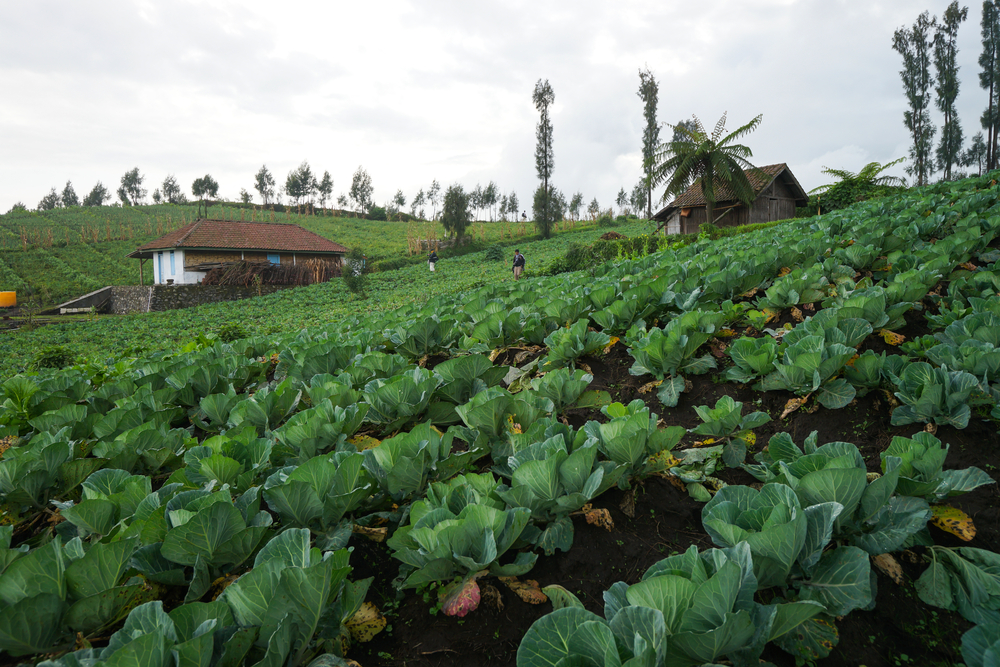
PAI’s performance aimed at accelerating the transition of Indonesian agriculture into a more sustainable sector is further highlighted in the report. More concretely, this has meant a reduction of more than 1.5 million litres of pesticide usage in more than 2 million hectares of plantations in both Indonesia and Malaysia. More than 16,500 spray workers and farmers were protected from overexposure to hazardous chemicals from pesticides, in large part due to their own efforts.
creating smallholder ecosystems.
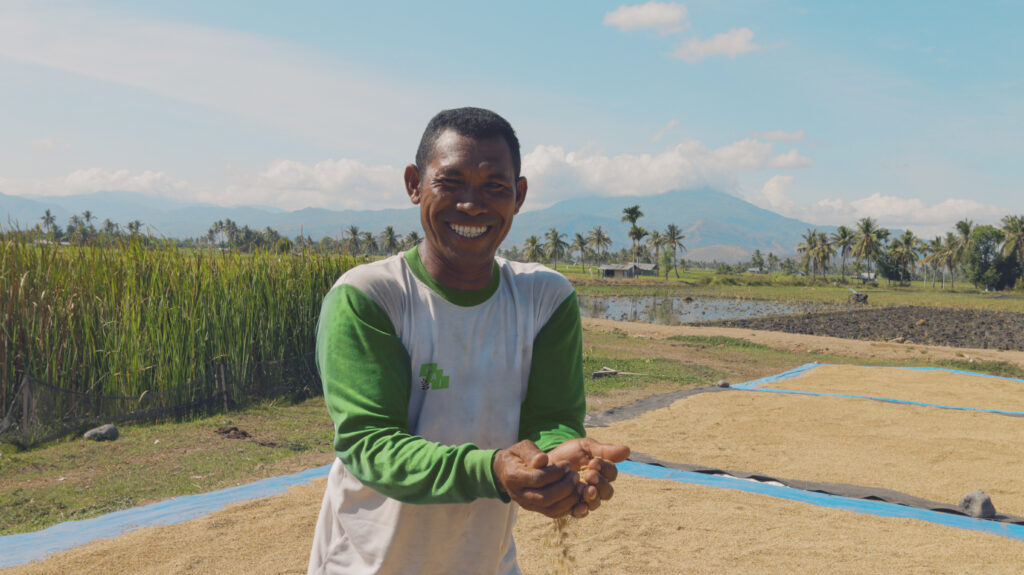
In addition to developing innovative reductants, PAI also created smallholder ecosystems. Here, smallholder refers to small-scale farms that produce relatively small volumes, especially when compared to their commercial counterparts. The Indonesian government has specifically classified farmers who hold plantation areas below 25 hectares as smallholders.
They are by no means a small percentage in Indonesia either. Estimates range from half of all Indonesian farmers being smallholders who earn an average of $US3.2 daily (which is less than SGD5!), to there being a total of 2.6 million smallholders total. By creating smallholder ecosystems, PAI further encourages sustainable agriculture at the grassroots level.
Kukuh explains the kind of system innovated: “We create an end-to-end smallholder ecosystem: in the upstream we facilitate farmers with technology and climate-smart agriculture approach in managing the cultivation, and in the downstream we assist the farmers with integrated post-harvest management.” She further goes on to add that they have managed to develop “an ecosystem of rice farmers in Nagekeo, coffee growers in Pagar Alam, and chili farmers in Banyuwangi.”
What does such a system mean for the farmers themselves? Smallholders powered by PAI’s innovations have reported an increase in crop productivity of up to 53%. In turn, this leads to a rise in income levels since crops were bought at competitive prices.
It doesn’t stop there. Collaborating with Rabo Foundation, the impact lending arm of the Rabobank Group, PAI has strengthened financial inclusion for smallholders through the distribution of inclusive financing. More than IDR 5 billion has been facilitated for smallholders through productive credit and product off-taking, helping to ensure that the farmers would be able to access the financial services available to them.
the future of sustainable agriculture.
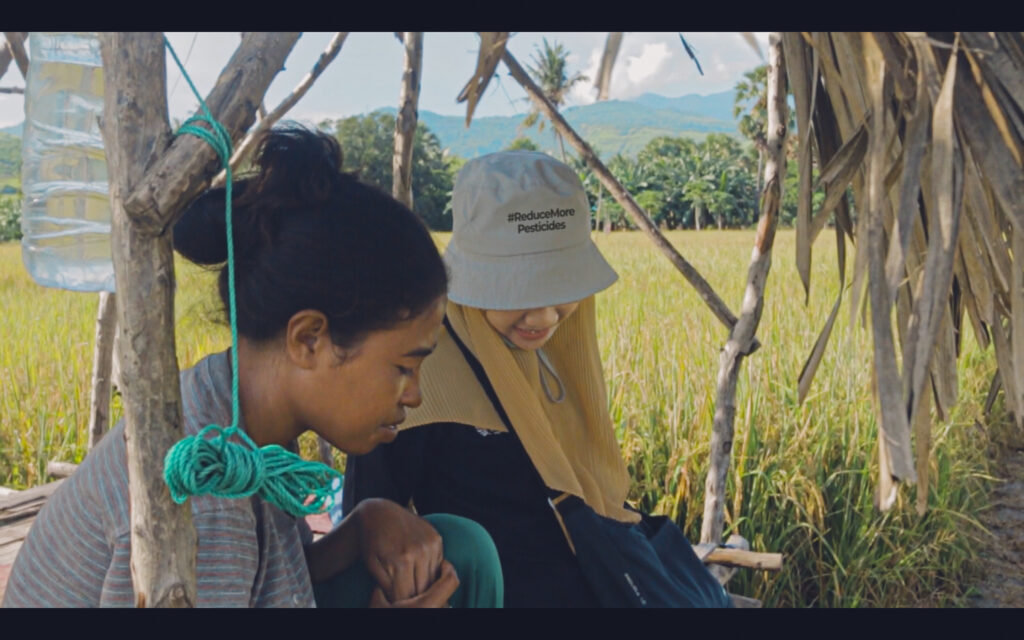
Of course, the impact of their actions has garnered much positive attention. Dr. Ir. Musdhalifah Machmud, M.T., Deputy Minister for Food and Agribusiness Coordination of the Coordinating Ministry for Economic Affairs of Indonesia is one such example.
He highlights that “PAI’s initiatives really support the government’s plan to implement a green economy as one of the main strategies for economic transformation.” Dr. Machmud further adds that this “also supports the acceleration of economic recovery post Covid-19 pandemic, as well as encourages the creation of inclusive and sustainable economic development.”
By focusing on the positive impact they had on the agricultural community and employees, while simultaneously maintaining good corporate governance, PAI is highly optimistic about the future of more sustainable agriculture in Indonesia.
“By extending our pesticide reductants reach and expanding the development of smallholder ecosystems, PAI is ready to accelerate Indonesian agriculture to become healthier, sustainable, and safer for the environment.” concluded Kukuh.
Enjoyed this article? Why not meet the man who never leaves pineapple leaves behind or check out a taste of locally-grown spinach or kale ice cream?

